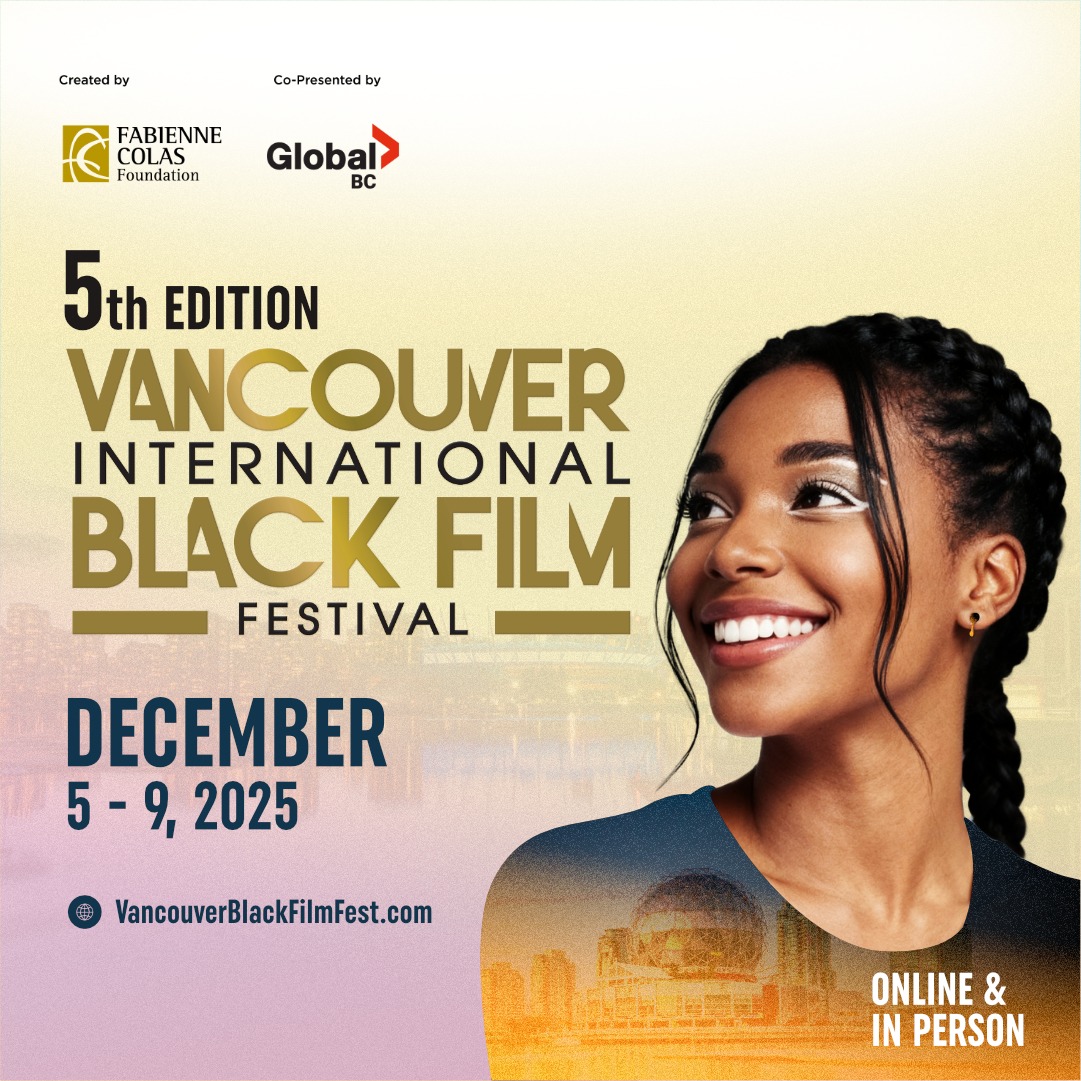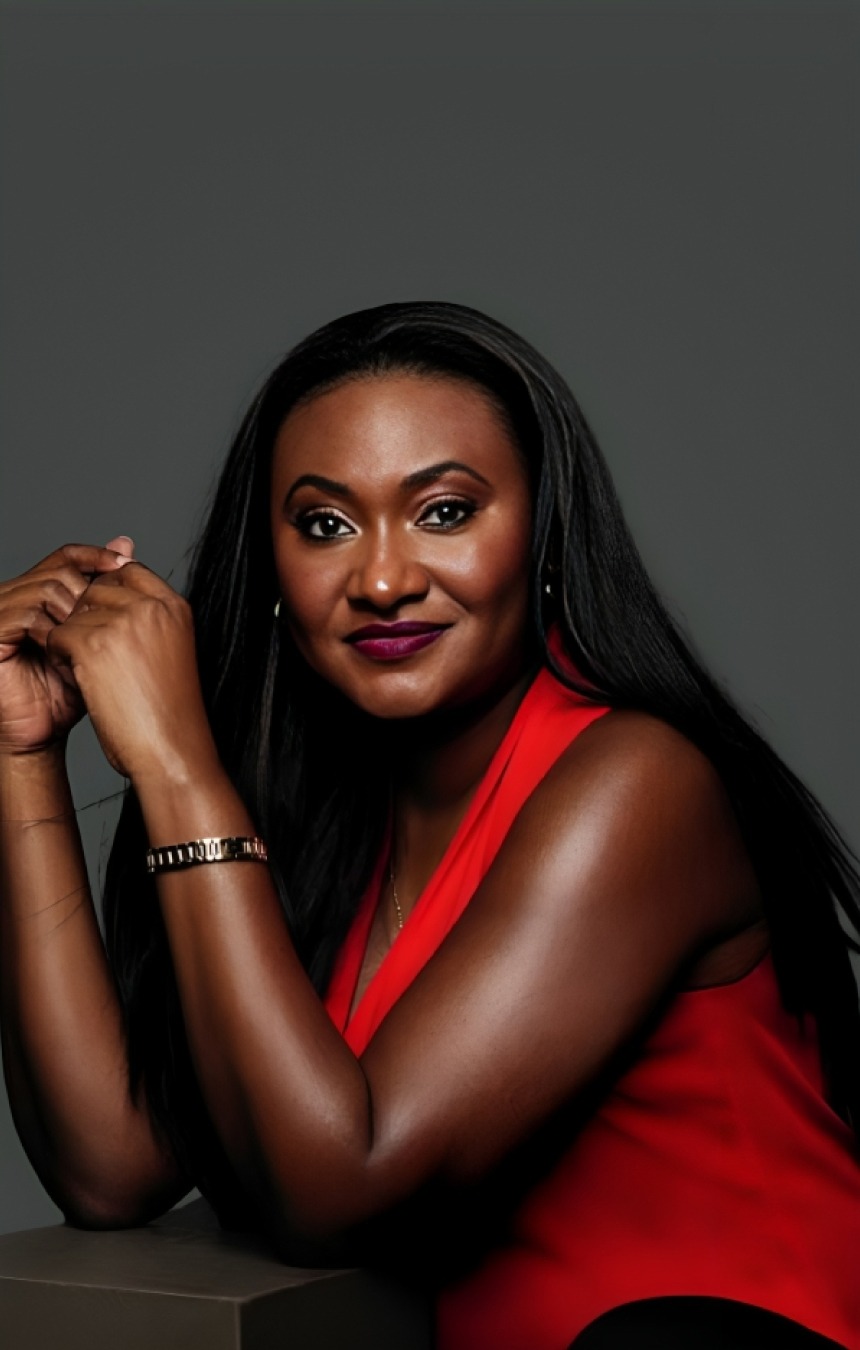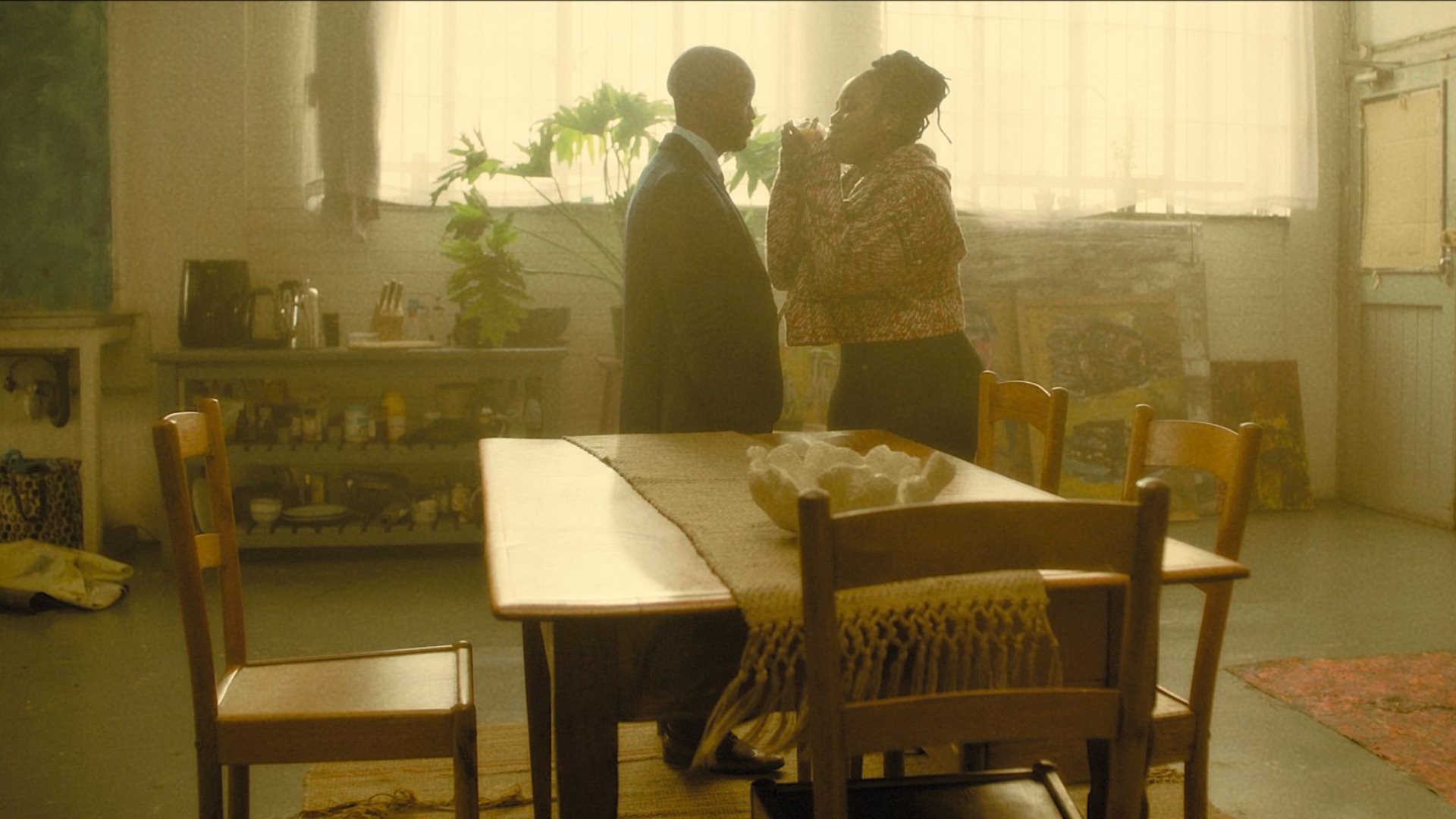Be sure to mark your calendars as the Vancouver International Black Film Festival is approaching. It had been a while since I covered this, and I got some more advance coverage this year much like I sort of did last time I did coverage. This festival has already hit half a decade and it’s doing great, which is a good enough reason for me to interview Fabienne Colas, who came up with this festival. She came up with lots of Black Film Festivals and they’re all over Canada and the world, making sure black people are getting the recognition and respect they deserve. As an open-minded individual who was raised wholly on acceptance, I accepted the opportunity to talk to Fabienne some more about this year’s VIBFF and what to expect. So let’s begin.
HNMAG: How did VIBFF start out?
Fabienne Colas: This festival started in 2020, and the idea was to create a platform in British Columbia for black film professionals so they could have a voice and be heard, seen, and share the black realities in general to the rest of the population and inspire great conversations. That’s why it started and how, is we’ve been doing this movement for over 20 years now in Montreal. We started out in 2005 with the Montreal International Black Film Festival, and that movement went on to Toronto, which we opened a film fest in 14 years ago, then in Halifax. During the pandemic, we also opened in Vancouver. We’ve created 12 festivals all around the globe. Brazil, Haiti, New York City, and all over Canada. We have music festivals and film festivals, however during the pandemic we launched three new festivals and Vancouver was one of them. We’re very happy to see the impact, so these festivals have become a movement with massive impacts.
HNMAG: Your foundation is pretty big and I love what it stands for. Besides creating film festivals, and the Being Black in Canada Program, what else has your foundation made and developed?
Fabienne Colas: Let me take a step back, I’m an actress, filmmaker, and movie producer. Everything started because when I came here over 20 years ago, I was looking for a way to be a working actress. I could not get access to all the big additions and stuff like that. 20 years back, I was not the type of casting they were looking for. Diversity and inclusion was not trending, there was no blacks matter, it was pretty hard and that’s when I said “Okay, no problem. So we’re gonna bring some Haitian films here which I starred in as a lead actress because I was a very popular actress in my country, Haiti. Unfortunately no festival wanted to screen these films. The were not interested in screening these types of films. I said “Well, we deserve to create more platforms for people to look like me and films that look like that” and that’s how we created the foundation back then. With the purpose and the mission to amplify black voices. In a time when again those themes were not trending, so it was very very hard. In the first project that we did was the Montreal Haitian Film Festival at the time, which 5 years later became the Montreal International Black Film Festival. Fast-forward to today with all these wonderful black film festivals in Toronto, Halifax, Calgary, Vancouver and Montreal of course. During this journey, I think more of the early 2010, 12, 14, we started a program called Being Black in Canada. That program was to go further than giving a platform for screening and a voice in film. To help emerging artists, black filmmakers to acquire skills, get trainings, to get into the industry to have business training for the film industry. Everything they need so that they can know the process of creating a short documentary film to get that first work professionally done. It would screen everywhere in our festivals and after that, some of them will screen internationally and in so many different festivals around Canada. 10 of them today have won Canadian Screen Awards. It’s really like a big big big incubator program that’s first of its kind in Canada. We’re very happy that we’ve been able to support filmmakers from Vancouver through VIBFF and besides that we also have a series called The Black Market during the festival. It’s really where we’ll have conferences, panels, discussions, on topics that are relevant to the film industry. What’s going on in the industry, what production is, how can we move foward, what reality, what’s holding us back. Those are some of the things we do at VIBFF.
HNMAG: The fact that it opens up with a film about coltan mining and villagers in Congo is a very serious but interesting subject. Why was it chosen to start off the festival?
Fabienne Colas: Hm, I wish I could take credit for that, but the programming team is the one that make those decisions for the festival. This film is so powerful, espeically now at a time where Congo, in the news with all going on over there. I think it’s more relvant than ever to come and see that, and this is the beauty of VIBFF. It’s a festival where you will get to see films that will not be in theatres afterwards. They will not be necessarily streamed on platforms afterwards, it’s a unique opportunity to see these films and in films that will sometime inspire you, educate you, mesmerize you but also shock you. This film is perfect because it was official selection at the Montreal Black Film Festival, back in September and it was very successful here. I’m go glad and delighted that it opens VIBFF as the BC premiere.
HNMAG: What are you looking to most forward for this year?
Fabienne Colas: I can’t wait for everybody to come and see this next generation of black filmmakers, who has been working with us the whole year to create their first documentary films and don’t wait until they win an Oscar or something. (laughs) Come and see them right now, they just got their first film out. Who knows? It may be the next Scott Cleese, or Clement Virgo, Jennifer Holness. I’m looking forward to that and seeing how the BC/Vancouver audience react to their films. This is going to be great, it’s really films from around Canada. From all over Canada, including Vancouver of course. I’m also looking forward to the other films for sure, and also the Black Market where we’re going to talk about how we can go beyond. We’re going to meet new production companies, we’re gong to talk about how do we move forward as new filmmakers.
HNMAG: With so many submissions coming in, is it hard to narrow down?
Fabienne Colas: I know that it’s never easy, because all festivals around the globe need to curate films and you cannot say yes to everyone. This is hard in itself and it is quite a hard process for them to do that because each film is important. But what I like is how they curate exactly the film that belongs to this festival and audiences are coming in greater numbers every year and supporting by being there. That is just amazing and the support also of the industry has been stupendous. This is why this festival is growing and it’s growing strong. We couldn’t be more grateful.
HNMAG: What were some of the most compelling stories ever showcased?
Fabienne Colas: Oh, wow. I have to get back to Being Black in Canada because it is a collective of emerging filmmakers and artists. That is a collection of short documentary films and in these films they touch on everything. They touch on culture, identity, immigration, inclusion, music, and tradition. What it is like to be black in Canada. What I like is it’s so diverse, so in one screening you get to have a glance of hope. One of the realities in Canada throughout life, so my favourite so far has been that and what I like is the festival is online AND in-person so somebody that is very faraway can still get access to the festival through the online program. This is the beauty of it.
HNMAG: You mentioned this festival has special events, like Black Market offering industry panels and other workshops. How are they coordinated?
Fabienne Colas: Well, this is a matter of group programming, the industry section, the black market. What they do is they make sure they listen to what’s going on in the industry. What the fimmakers want to talk about, hear about, or want to learn. They get to try to bring answers through professionals in the industry, through experts to come and talk about everything that the industry would like to hear about. The knowledge they would like to be shared with them. I think it’s brilliant and what they started to do too is networking sessions, they’re going to introduce new production companies, other people from the industry so that everyone can meet one another and not only be inspired, educated, and empowered, or uplifted, but also foster collaborations. I love the Black Market for that where the industry gets to meet, it’s open to everyone btw, but everyone gets to meet and to extend to network and explore what we can do together. We need that especially in BC where you don’t have the type of support that Montreal and Toronto benefit from. Because they are bigger markets where you have more of a bigger black community, so I think it’s very important for Vancouver, especially black artists to get that chance.
HNMAG: There’s also a Canadian Spotlight showcase this year. Why is it indicated as online only?
Fabienne Colas: Oh. Well, those are a strategic decision from the programming team again. I think it’s BEAUTIFUL because this spotlight is covering all the black film festivals, we have 6 in Canada. This is a chance for EVERYBODY to get to see them, because a lot of times people are saying “Oh well, if I cannot make it, is this film online?” because usually every film is not online so having this great selection of Canadian films onlne and some of them were not necessarily made this year or last year. Usually the curation of the official selection is in the last 2 years but THIS one goes a little bit further. That means you have from 2021, 2022, 2023, 2024 so I think it’s nice to give these films a second look, a second life, a second opportunity for people who have missed them to enjoy them, to see them. Otherwise, they may miss them forever.
HNMAG: What else is featured in the online component?
Fabienne Colas: Oh yeah, the Being Black in Program is also online. I’m sure there are other films there as well, for 5 days. People can definitely get their online passes and enjoy the experience right with their best PJ’s on and in the comfort of their home. Or they can come in-person or do both. We appreciate any support we can get.
HNMAG: It spans for a little more than a weekend. How are you able to squeeze so much into the time frame?
Fabienne Colas: There’s a lot we can take over a few days, so that’s the beauty of it. That’s what a festival is for, in a short period of time let’s run that marathon. Let’s come together, squeeze everything in, just devour all we can. That’s the idea of a festival.
HNMAG: What do you hope this year’s VIBFF will help in achieving?
Fabienne Colas: More joy spreading everywhere, more awareness, more eye-opening experiences. AND more discoveries. This is a festival for everybody, especially non-black people because they don’t get access to those kinds of films. They don’t get to know about these realities in their history books, so this is a great opportunity for black AND non-black to come and enjoy this experience. Not just to meet great artists, but also people from the audience. Film buffs, you know, and when we get together, we get to understand each other better and get to know each other better. That’s what togetherness and also a cohesive society is all about.
HNMAG: What are your hopes for the festival in the future?
Fabienne Colas: I hope it keeps going strong and growing, and serving even more and more Canadian filmmakers before everything. Yes, it is an International festival, yes, we have films from around the globe. But before everything it is also a local film festival dedicated FIRST and FOREMOST to Canadian artists and BC artists, and Vancouver artists.
Fabienne also added that while local is the main subject, they also explore what the rest of the world is doing and what can inspire us, who we can partner with, so that is the aim as well. She went on to say the more the festival grows, the more job creation will continue as well. There will be many benefits for everyone in this. At the same time, they expect to have an economic impact on the ground by hiring more artists, art professionals, mentors and everyone else. Not to mention new sponsors, new funding, so they can achieve a bigger and better festival.



